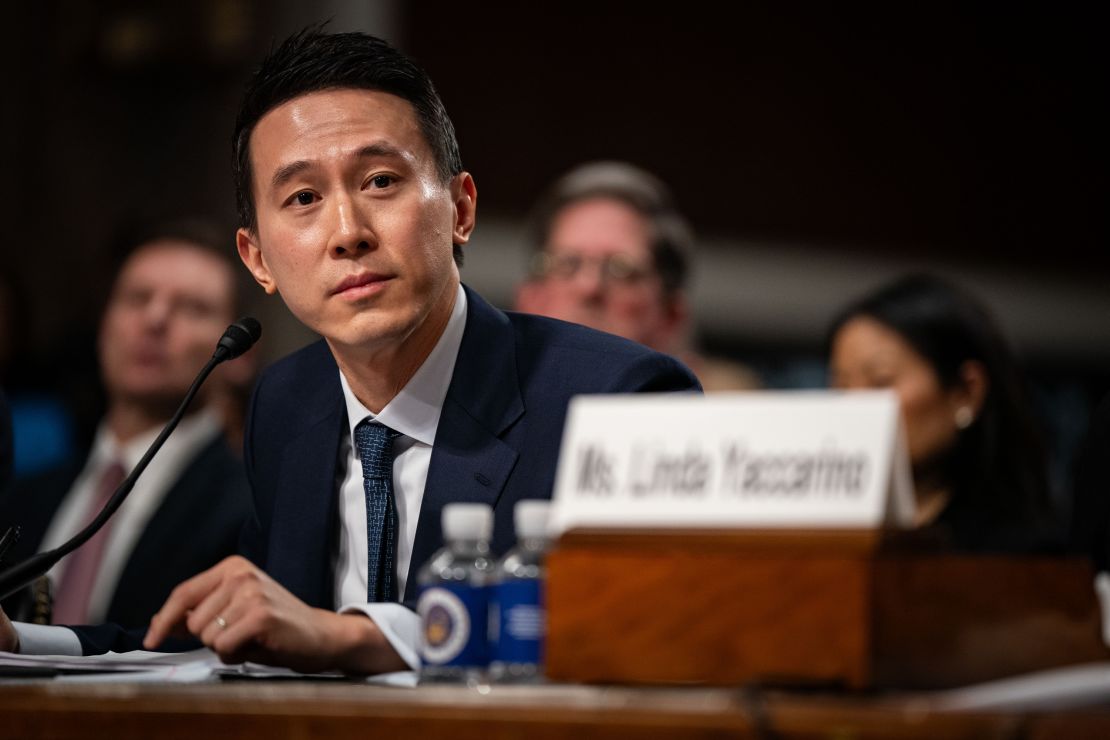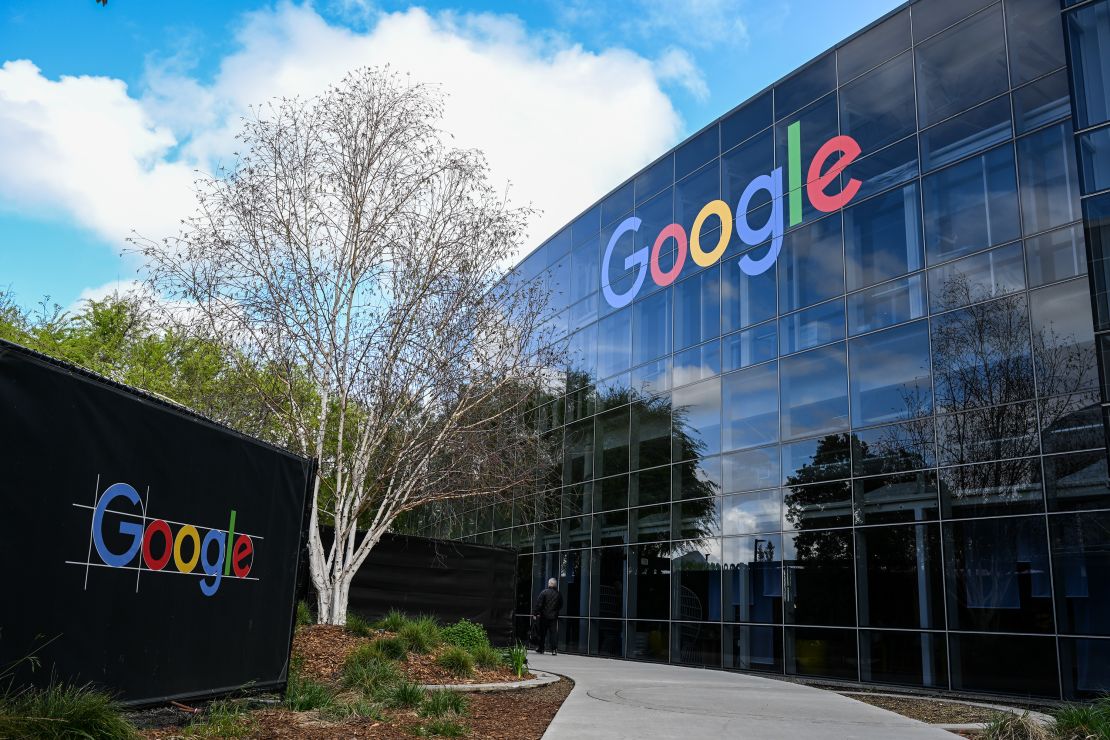The incoming Trump administration could mean big changes in the government’s relationship with tech companies in ways that could affect users, ranging from the content they might see online to whether they could be confronted with discriminatory AI systems.
President-elect Donald Trump and many of his allies have had a combative relationship with tech giants –— repeatedly accusing them of having too much power and sometimes wielding it in ways that negatively impacted him.
It was during Trump’s first administration that conversations about banning TikTok first began and a lawsuit that could now lead to the breakup of Google was filed. He sought to swat down legal protections for tech platforms. And several months ago, he threatened to throw Meta CEO Mark Zuckerberg into prison.
But since his last term, Trump has apparently made a 180-degree-turn on many tech-related issues. He’s suggested he no longer wants to ban TikTok or break up Google – although it’s not clear he’ll be able to stop the train on either issue. He now has his own social media platform, Truth Social, which would almost certainly be subject to whatever new rules he tries to impose on rivals. And he has Elon Musk in his ear, who has suggested he will push for deregulation and unfettered tech innovation.
As Big Tech leaders — many of whom sought to curry favor by congratulating Trump as soon as the election result was called — now await inauguration day, here are five of the biggest questions about the president-elect’s potential impact on the tech industry:
Will TikTok be banned?
Trump once tried to ban TikTok from the United States by executive order over national security concerns, but he has since had an about-face.
Trump said in June — in a video posted to the platform itself — that he would “never ban TikTok.”
Of course, it’s not clear if he’ll be able to deliver on that promise.
With momentum that began under his leadership, Congress this year passed a law that will ban TikTok in the United States if the platform is not spun off from its Chinese parent company, which has indicated it will not do so. TikTok sued to block the law, and the case is awaiting a ruling by a panel of federal judges. But the ban is set to go into effect one day before the inauguration, which means Trump may have missed his chance to have any say.

Trump could ask Congress to repeal the law, although experts say that effort would likely fail. From there, he likely has two options: he could direct the attorney general not to enforce the law or announce that TikTok is no longer subject to the law, according to University of Minnesota associate law professor Alan Rozenshtein.
The first approach would involve signaling to TikTok’s tech partners like Apple - which stand to face fines under the law if it continued to host TikTok on its app store - that they “should feel free to continue business with TikTok,” Rozenshtein told CNN. “But again, if you’re the general counsel of Apple, does that really give you a lot of confidence? You’re still violating the law. Trump is very mercurial.”
The latter would rely on a portion of the law that gives the president some authority to determine if a “qualified divestiture” of TikTok has taken place. In theory, Trump could declare that it has, whether or not that’s true,and then would have to hope it doesn’t get challenged in court.
“It’s not clear who could sue to enforce the law. Congress isn’t allowed to sue to enforce its own laws,” Rozenshtein said, adding that there are few parties who could claim “concrete injury” to sue if Trump falsely claims qualified divestiture had occurred.
Will Trump be more lax on AI?
Trump will enter the White House at a time when many, even in the artificial intelligence industry, have called for regulation to curb AI’s worst potential outcomes.
Trump conceded in an interview with Fox News over the summer that AI has “tremendous potential but it’s also got potential to destroy … we’ve got to be very careful with artificial intelligence.” Musk, who is now advising Trump, also once called for a pause on the technology’s development — before starting his own AI firm.
However, Trump appears poised to roll back what few guidelines exist for AI firms. The Republican Party’s election platform included a promise to repeal an executive order signed by President Joe Biden that laid out sweeping actions to manage some of the worst risks from AI, including discrimination and threats to national security.
The Republican document said the executive order contained “radical leftwing ideas” that hindered innovation.
“I think whatever replaces (the Biden order), if anything does, will probably be less regulation heavy,” said John Villasenor, faculty co-director of the UCLA Institute for Technology, Law and Policy.
However, he said that Trump could push for federal laws that preempt state AI regulations on issues like the use of AI in hiring to prevent a patchwork of different rules that could make it harder for tech companies to operate.
What’s the future of Section 230 and social media liability?
Many Republicans are eager to see the Trump administration address what they see as “censorship” of right-leaning voices by many mainstream social media platforms. Trump himself once threatened to veto an annual defense bill unless Congress repealed the legal protections for social media companies by a law called Section 230.
Trump’s pick to head the Federal Communications Commission, Brendan Carr, recently warned tech giants that the new administration would “take broad ranging actions to restore” Americans’ First Amendment rights. That could mean reforming or reinterpreting Section 230, which shields tech platforms from liability for their users’ posts and allows the platforms to moderate content as they see fit.
“(Carr) wants to, essentially, interpret Section 230 in a way that says that if they take down certain speech, then they lose their protection under the first part of” the law, said Gigi Sohn, a lawyer who worked for the FCC under Democratic chairman Tom Wheeler. In essence, Carr could attempt to pass a rule that would make it possible to sue tech platforms under that new interpretation.
Ultimately, that could mean hamstringing tech companies’ efforts to reduce hateful or false content on their platforms.
However, it’s not clear that the FCC has the authority to make such a change. While Democrats have also called for Section 230 reform, their concern is much different: they worry it lets tech companies off the hook for not doing enough to moderate harmful content.
Evan Greer, director of the digital rights advocacy group Fight for the Future, said she fears that Carr’s discussion of hot-button social media issues might be a “very convenient way of distracting” from his other plans including rolling back net neutrality.
Any changes to increase platform liability could also directly impact Trump’s Truth Social and Musk’s X, which could make deciding how to act on the issue more complicated.
Will he keep fighting to break up the tech giants?
With Lina Khan at the helm of the Federal Trade Commission, the Biden administration oversaw a slew of antitrust actions against tech giants. While Vice President-elect JD Vance has praised Khan’s approach, she’s widely expected to be shown the door when Trump ushers in a more business-friendly agenda at the White House.
Days before the election, Musk posted to X that Khan “will be fired soon.”

That could mean a return to more corporate consolidation – Khan fought mergers like Microsoft and Activision Blizzard, and Kroger and Albertsons – and could make it easier for companies to jack up prices.
“For example, if a large established company wants to buy an up-and-coming, highly successful AI startup, whereas under the Biden administration, you might have had the FTC basically put the brakes on that, you may be less likely to see that happening under the new Trump administration,” Villasenor said.
This approach also raises questions about whether Trump would encourage his Justice Department to let up the fight to break up Google, and how the DOJ would handle ongoing antitrust cases against tech giants, including Apple.
Will we ever see a kids’ online safety law passed?
If there is one tech policy issue where Democrats and Republicans might agree under a Trump presidency, it may be the already bipartisan issue of children’s safety or privacy online.
However, experts are skeptical after years of talk, disagreement over the right approach and little action.
“We see a lot of tech policy that’s really just sort of ‘made for TV’ versus made for, like, actually passing through Congress or legislating in any meaningful way that will stand up in court,” Greer said.
Republican Sen. Marsha Blackburn of Tennessee and Democratic Sen. Richard Blumenthal of Connecticut have urged Congress to pass the Kids Online Safety Act soon, after it passed the Senate over the summer. Although it’s the closest lawmakers have come to passing youth online safety legislation in years, the bill still faces opposition.
House Speaker Mike Johnson said last month that while he likes the idea behind the bill, he finds the details “very problematic.”











